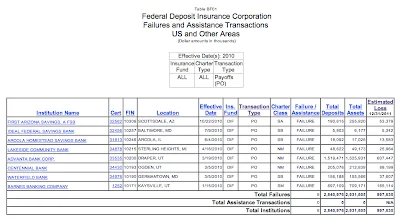https://www.imf.org/en/Blogs/Articles/2025/09/17/global-debt-remains-above-235-of-world-gdp
Friday, September 19, 2025
I keep hearing that gold is soaring because of continued dollar weakness lol
On the contrary, gold has risen despite continued dollar strength.
The enormous gains for gold in 2024 and 2025 are not explained by a round trip in the dollar index from 120 to 129 and back again. That's just a little side show in the bigger picture of dollar strength.
The dollar index has made steady progress out of the pit of despair at 85.46 in July 2011 under Barack Obama, the enemy of fossil fuels, to a place of relative strength today averaging above 120 in 2022 and 2023, 123 in 2024, and 125 in the first half of 2025.
Speaking of a weak dollar in this context is laughable.
Maybe the dollar is so strong again because the United States has become a net exporter of oil. The 1975 ban on oil exports was lifted in December 2015. Net imports of oil went negative for the first time since 1950 in 2020.
Gold is probably so strong in part because of increasing debt globally, which like rising prosperity helps drive demand for it as a hedge. Extreme poverty gripped half the world in 1950 but by 2020 it afflicts just 10%. Meanwhile gold production has nearly tripled over the period.
As a percentage of global GDP, global debt has gone from just above 100% of global GDP in 1980 to a whopping 235% of global GDP in 2024.
Wednesday, February 14, 2024
NATO chief concedes Trump has a point lol
Stoltenberg knows damn well he might have to deal with Trump again if he's elected in November, and isn't about to alienate him now. After the election and Trump loses? Yeah, maybe then, but not now.
Reported here:
NATO chief concedes 'valid point' of spending criticism as allies up defense budgets

NATO
Secretary General Jens Stoltenberg
Susana Vera | Reuters
NATO Secretary General Jens Stoltenberg conceded to criticism that some members have been underfinancing the coalition’s defense budget, saying he expects a record 18 allies to meet their military spending goal this year.
His comments come on the footsteps of the controversial remarks of former U.S. president and Republican frontrunner Donald Trump, who said he would not protect NATO nations from Russian hostilities if they fall behind on their membership payments.
Trump’s statements kindled widespread ire from the international community, including from fellow Republicans, drawing Stoltenberg to earlier this week accuse that such a suggestion “undermines all our security.”
“The criticism that you hear is not primarily about NATO, it’s about NATO allies not spending enough on NATO. And that’s a valid point,” Stoltenberg said during a press briefing on Wednesday, in response to a question on whether Trump’s comments aligned with the broader views of Republican officials that the NATO chief has engaged.
“It’s a point and a message that has been conveyed by successive U.S. administrations that European allies and Canada have to spend more, because we haven’t seen fair burden sharing in the alliance,” Stoltenberg added. “The good news is that this is exactly what NATO allies are now doing.”
Saturday, October 17, 2015
Surprise, The New York Times thinks Denmark, the land of the drunk, mean and discriminatory, is just wonderful!
Tuesday, July 14, 2015
IMF signals that it cannot now participate in the third bailout of Greece
IMF may have to back out of latest Greek bailout deal reached in Brussels early Monday
Saturday, October 4, 2014
The New York Times speaks out against free-trade
Thursday, April 25, 2013
Central Bankers Buying Stocks: Is This Another Sign Of A Top?
Even so, 70 percent of the central bankers in the survey indicated that equities are “beyond the pale.”
Notice how the first paragraph calls central banks "risk-averse investors", showing that the line between investing and banking has been completely erased in the popular reporting even as the evidence of the survey shows that for most central bankers the line remains boldly drawn. Banks don't invest, they bank.
Purchases of gold by central banks in recent years is interesting in that context. While buying stocks might mean investing to central bankers, something to be shunned, buying gold is not really investing, otherwise they wouldn't have been doing so much of it.
Gold reserves in the world now total roughly 31,000 tonnes, or about $1.5 trillion if gold is $1,500 the ounce. This amounts to 13.7% of the total forex reserves of $10.9 trillion mentioned in the article. In the context of the Basel III capital rules, that's considerably more hard collateral being set aside by the folks running the show as time goes by than by the downstream bankers who protest against building up to seven, eight or nine percent capital ratios.
I'm glad central banks are buying more gold. They should do even more of it. But investing in stocks by banks, central or otherwise, isn't banking. It's gambling, especially at these levels.







